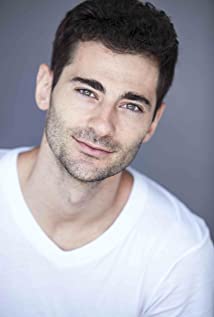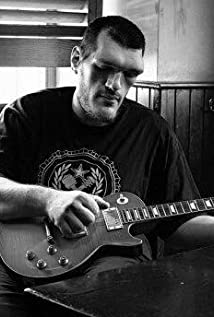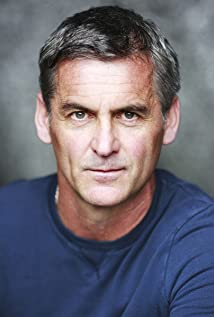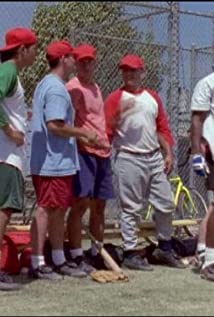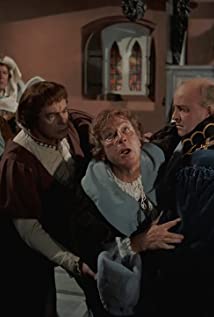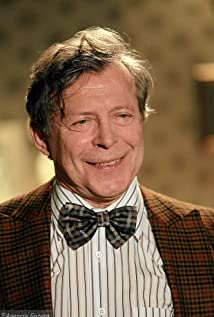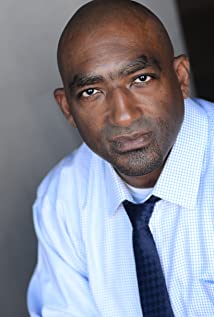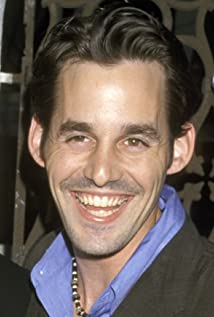Leo Genn was born on August 09, 1905 in London, England, United Kingdom, is Actor. Leo Genn was the son of a successful jewelry merchant Woolfe (William) Genn and his wife Rachel Asserson. He attended the City of London School as a youth and went on to study law at Cambridge. He received his law degree as a qualified barrister (which in English law tradition is a lawyer who is a specialist in law and who appears in court as representative of a client, whereas a solicitor is also a lawyer but further defined as an attorney who deals directly with the client, writing all case-related briefs and hiring a barrister for court appearance - there is no such division in the USA). He began practice in 1928, however law was not his only interest. Acting caught his eye, and about 1930 he made the acquaintance of actor/manager Leon M. Lion, who needed an actor and a legal advisor. Genn fitted both and was hired and later that year made his stage debut. It was certainly of practical value that he continued offering legal counsel into the 1930s to augment the small income of a budding stage performer learning his craft. In 1933 he met and married Marguerite van Praag, a casting director at Ealing Studios.His first screen role was as Shakespeare's Shylock in the UK production The Immortal Gentleman (1935). It mortised nicely between his two year (1934-36) period of Shakespearean apprenticeship as a member of the Old Vic Company where he appeared in many productions of Shakespeare. Genn had a very pleasant neutral British accent that could fit anywhere. And his voice was wonderfully smooth and yet authoritative, likened to "black velvet", that fit like a glove to his refined manner. Douglas Fairbanks Jr.., in London for one of his many UK starring vehicles, hired Genn as a technical advisor on the law for Accused (1936) and received a bit role - not for his legal advice - but for a "splendid voice and presence". But the legal side of his character stuck to him as he was in the process of dropping the law for acting full time. He spent 1937 playing film prosecutors and defending attorneys - not something he expected. Things picked up the next year - though still wading through some crime dramas - when he nabbed a small Indian character role in The Drum (1938), the ambitious adventure yarn by producer Alexander Korda. And he was the prince dance partner to Wendy Hiller in Pygmalion (1938) - uncredited - as was a young Anthony Quayle. Obviously, small featured extra roles allowed time for more ambitious outings. He starred in the stage hit "The Flashing Stream" also in 1938. It received the nod from Broadway, and Genn made his American debut in early 1939 in the play's successful run in New York.Though still tagged for law officialdom in several films, Genn moved on to more hearty supporting roles in 1940 with war looming. He joined the Royal Artillery and received a rank of Lieutenant Colonel in 1943. In that year he was already wanted for film's war effort agenda as movie narrator. In 1944 he was given leave for two flag-waver movies - the second a most unusual and significant cinematic event. For Genn, it was a small part, but it was part of a glorious celebration of England and English history during the crisis of World War II - the Henry V of Laurence Olivier. Genn was the Constable of France, and though the lines were few, Shakespeare infused them with a sardonic wink that Genn delivered perfectly in an understated style that became one of his hallmarks. This part brought him to notice as a film actor, but he did not entertain its fruits until later 1946, for with the end of the war Genn, who had been awarded the French Croix de Guerre in 1945, went back to law counseling. He volunteered his legal knowledge to the British army unit involved in the investigation and prosecution of Nazi war crimes perpetrated at the Belsen concentration camp near Luneburg, Germany. And in the subsequent tribunals, Genn served as assistant prosecutor.He was back in film in 1946, but more so he was being courted by Broadway to return - which he did in that crowded year with one of his best stage roles in the Lillian Hellman classic "Another Part of the Forest". Hollywood waited in the wings to grab him for the Eugene O'Neill update Mourning Becomes Electra (1947) of the ancient Greek tragedy triangle "Orestaia". It was not Genn's American film debut, for he had appeared in the UK/US crime drama Girl in the News (1940) - as - what else - a prosecuting counsel - a barrister. He was competing with the American debut of Michael Redgrave in the O'Neill adaptation (3 hours, pared to about 2 hours for general release). The film was a great piece of dialog display but a disaster at the box office. But the chemistry of Genn with Rosalind Russell was such that they were marketed together again the next year in another American film, The Velvet Touch (1948), more whodunit but with snappy lines. Subsequently Genn was about equally in demand for film and stage on both sides of the Atlantic.His film roles on into the 1950s were somewhat uneven, but Genn was always to form - the calm, understated but in control male lead or supporting character, whether war adventure or the inevitable crime drama - many a steady military officer and understanding professional - with a bit of comedy and a few shady characters thrown in.Perhaps his best known American film role was as the sardonic Gaius Petronius Arbiter in Quo Vadis (1951). Genn's generous part as the ancient Roman satirist was filled with double meaning quips and understated sarcasm that Genn delivered with his poker face charm and subtle sidelong glances. He is so good that the audience hangs on his next sub-level dig with anticipation that partially eclipses the first rate histrionics of Peter Ustinov as a tongue-in-cheek deranged Nero. The level of Genn's performance was recognized with a Best Supporting Actor Oscar nomination. The next year he was more than just a straight-laced William Bradford of American colonial history fame in Plymouth Adventure (1952), a much maligned American film that was, in fact, a realistic portrayal of the trials and tribulations of the Pilgrims (they were not all religious dissenters, not the dour, black and white Puritans who were later arrivals). Having to compete with a cantankerous, perhaps too hammy Spencer Tracy as the ship's captain, Genn's understated intensity brings off a compassionate portrayal.Genn helped grace some of the most ambitious films of the later 1950s and into the 1960s: Moby Dick (1956), The Longest Day (1962), and 55 Days at Peking (1963). He embraced TV playhouse, both American and British programs, and US/UK episodic series through the period, as well as more outings on Broadway. He made six appearances on the Great White Way - the last in a short run of "The Only Game in Town" in mid 1968. All along Genn's voice had found welcoming slots in narration. Beside films, he was the voice of the royal coronation programs of 1937 and 1953. And he always kept a foot in his first love, British theater; he was a governor of London's The Mermaid Theatre.
Leo Genn is a member of Actor
Does Leo Genn Dead or Alive?
As per our current Database, Leo Genn has been died on 26 January 1978(1978-01-26) (aged 72)\nLondon, England.
🎂 Leo Genn - Age, Bio, Faces and Birthday
When Leo Genn die, Leo Genn was 72 years old.
| Popular As |
Leo Genn |
| Occupation |
Actor |
| Age |
72 years old |
| Zodiac Sign |
Virgo |
| Born |
August 09, 1905 ( London, England, United Kingdom) |
| Birthday |
August 09 |
| Town/City |
London, England, United Kingdom |
| Nationality |
United Kingdom |
🌙 Zodiac
Leo Genn’s zodiac sign is Virgo. According to astrologers, Virgos are always paying attention to the smallest details and their deep sense of humanity makes them one of the most careful signs of the zodiac. Their methodical approach to life ensures that nothing is left to chance, and although they are often tender, their heart might be closed for the outer world. This is a sign often misunderstood, not because they lack the ability to express, but because they won’t accept their feelings as valid, true, or even relevant when opposed to reason. The symbolism behind the name speaks well of their nature, born with a feeling they are experiencing everything for the first time.
🌙 Chinese Zodiac Signs
Leo Genn was born in the Year of the Snake. Those born under the Chinese Zodiac sign of the Snake are seductive, gregarious, introverted, generous, charming, good with money, analytical, insecure, jealous, slightly dangerous, smart, they rely on gut feelings, are hard-working and intelligent. Compatible with Rooster or Ox.
Biography/Timeline
1930
Leon M. Lion saw Genn act and offered him a contract. His theatrical debut was in 1930 in A Marriage has been Disarranged at the Devonshire Park Theatre, Eastbourne and then at the Royalty Theatre in Dean Street, London. Actor/manager Leon M. Lion had engaged him simultaneously as an actor and attorney. In 1933 he appeared in Ballerina by Rodney Ackland. Between September 1934 and March 1936, Leo Genn was a member of the Old Vic Company where he appeared in many productions of Shakespeare. In 1937 he was Horatio in Tyrone Guthrie's production of Hamlet, with Laurence Olivier as Hamlet, in Elsinore, Denmark. In 1938, Genn appeared in the theatrical hit, The Flashing Stream by Charles Langbridge Morgan and went with the show to America and Broadway. His many other stage performances included Lillian Hellman's Another Part of the Forest, 12 Angry Men, The Devil's Advocate, Maugham's The Sacred Flame. In 1959 Genn gave a reading in Chichester Cathedral.
1933
Genn attended the City of London School and studied law at St Catharine's College, Cambridge, qualifying as a barrister in 1928. He ceased practising as a Lawyer soon after World War II. On 14 May 1933, Genn married Marguerite van Praag, a casting Director at Ealing Studios. They had no children.
1935
Genn's first film role was as Shylock in Immortal Gentleman (1935), a biography of Shakespeare. Douglas Fairbanks, Jr. hired Genn as a technical advisor on the film Accused (1936). He was subsequently given a small part in the film on the strength of a "splendid voice and presence". Genn received another small role in Alexander Korda's The Drum (1938) and was the young man who danced with Eliza Doolittle at the duchess's ball in Pygmalion, a film made in the same year, although he was uncredited.
1940
With war approaching, Genn joined the Officers' Emergency Reserve in 1938. He was commissioned in the Royal Artillery on 6 July 1940 and was promoted to lieutenant-colonel in 1943. In 1944, the actor was given official leave to appear as the Constable of France in Laurence Olivier's Henry V.
1945
Genn was awarded the Croix de guerre in 1945. He was part of the British unit that investigated war crimes at Belsen concentration camp and later was an assistant prosecutor at the trial for Belsen in Lüneburg, Germany.
1946
He was in Green for Danger (1946) and The Snake Pit (1948). After his Academy Award-nominated success as Petronius in Quo Vadis (1951) he appeared in John Huston's Moby Dick (1956). Genn also appeared in some rather forgettable American films, such as The Girls of Pleasure Island, and Plymouth Adventure (1952), a fictionalised, but entertaining soap opera treatment of the Pilgrims' landing at Plymouth Rock. He fared far better in a British film, Personal Affair (1953), starring opposite Gene Tierney.
1960
He played Major Michael Pemberton in Roberto Rossellini's Era Notte a Roma (Escape by Night, 1960). Leo Genn narrated the coronation programmes of both 1937 and 1953, the King George VI Memorial Programme in 1952, and the United Nations ceremonial opening (in the USA) in 1947.
1968
Genn was a governor of the Mermaid Theatre and trustee of the Yvonne Arnaud Theatre. He was also council member of the Arts Educational Trust. He was appointed Distinguished Visiting Professor of Theatre Arts, Pennsylvania State University, 1968 and Visiting Professor of Drama, University of Utah, 1969.
1978
Genn died in London on 26 January 1978. The immediate cause of death was a heart attack, brought on by complications of pneumonia.
Leo Genn trend










